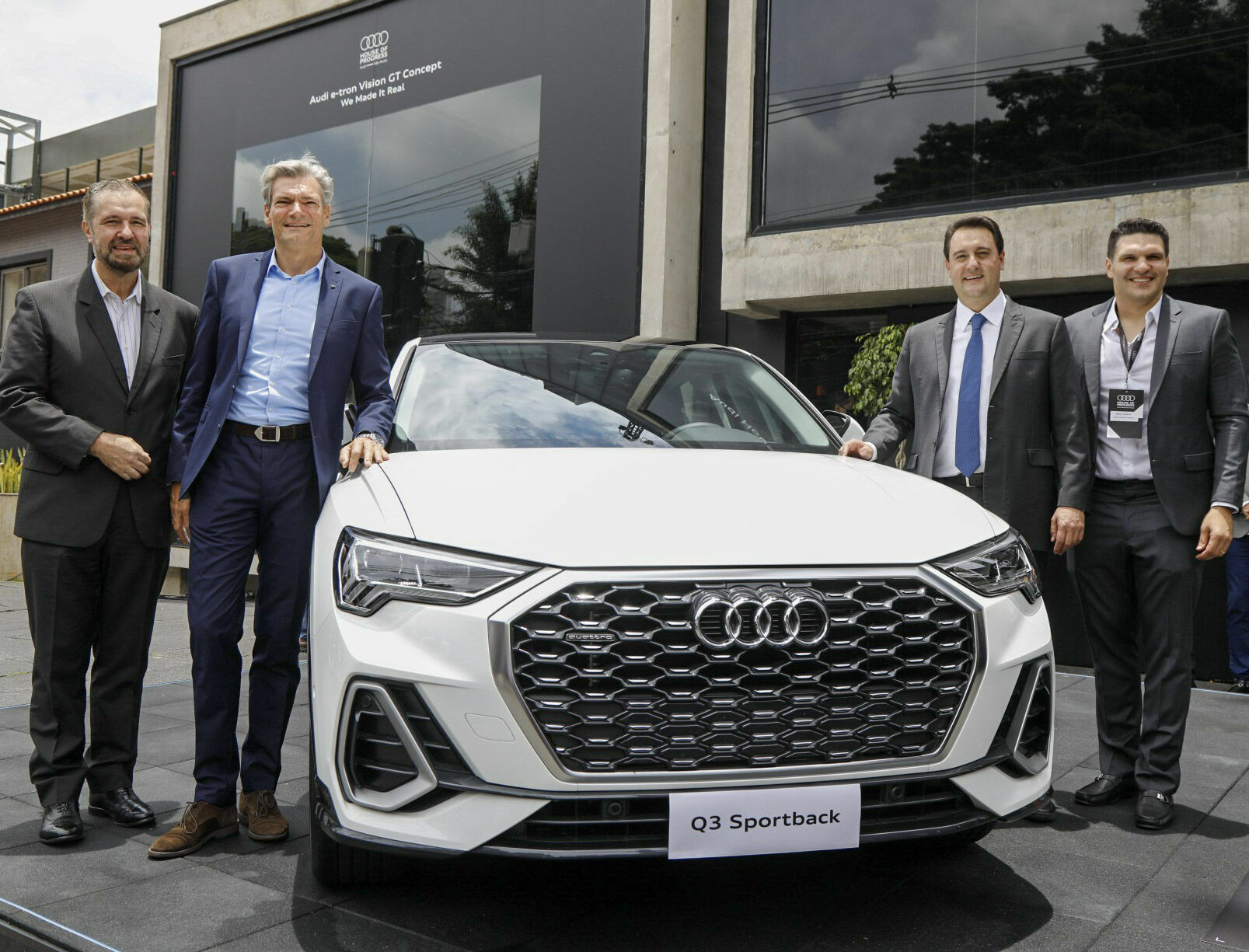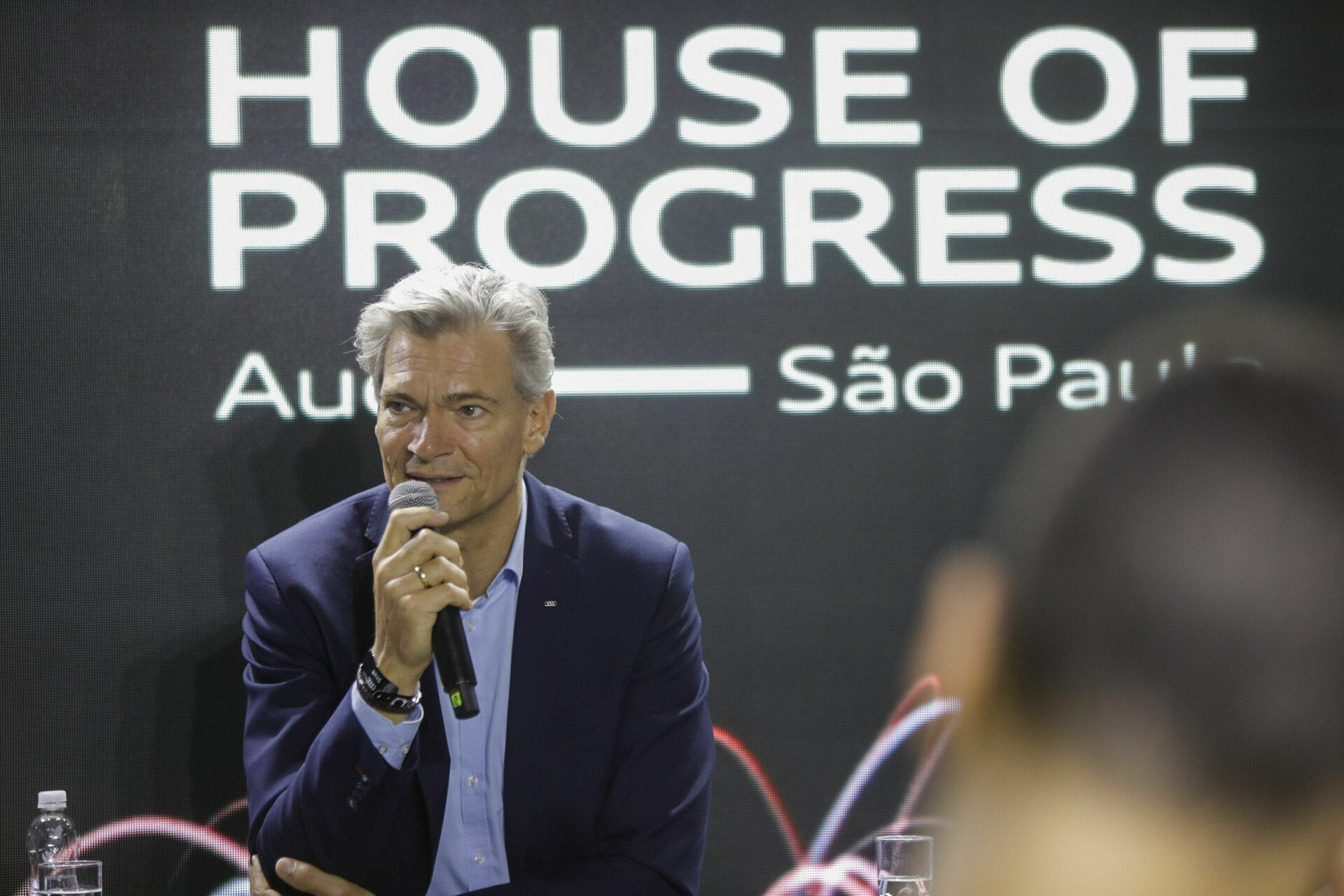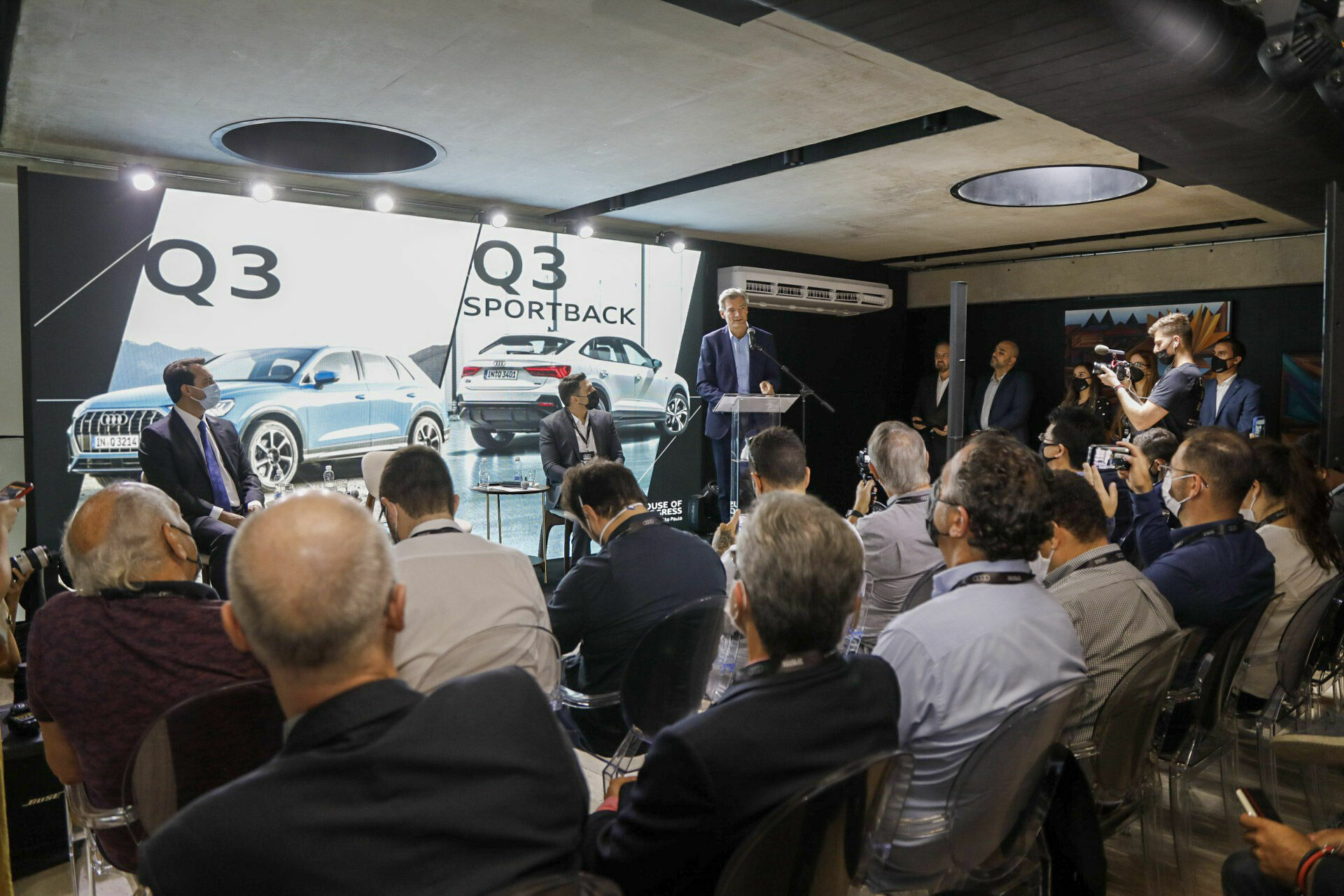Audi do Brasil will resume production in 2022
- In the São José dos Pinhais plant in the state of Paraná, two models will soon be in production: the Audi Q3 and the Audi Q3 Sportback with the reliable 2.0 Liter TFSI engine
- For the first time, Audi do Brasil will produce a model with quattro technology in Brazil
- In a joint initiative, Audi do Brasil and its dealerships have announced investments of over R$20 million to install ultra-fast 150 kW charging points at dealerships across the country
Audi do Brasil is confirming that production will resume at its plant in São José dos Pinhais in the state of Paraná in mid-2022. The models selected for assembly in Brazil are the Audi Q3 and the Audi Q3 Sportback, both with 2.0 Liter TFSI engines and quattro technology. The announcement was made jointly by Carlos Massa Ratinho Junior, Governor of the state of Paraná, Johannes Roscheck, Managing Director and CEO of Audi do Brasil, Abílio Oliveira, President of Assoaudi (Associação Brasileira dos Distribuidores), and other officials and corporate representatives.
For Ratinho Junior, Governor of the state of Paraná, “the announcement that Audi will resume production in the São José dos Pinhais plant is the high point of a positive trend in the state of Paraná. The state is quickly recovering from the aftermath of the pandemic with a rapidly growing economy and employment. We are proud to be Audi’s home in South America. Because of that, we have achieved a lot in recent decades.”
Johannes Roscheck, Managing Director and CEO of Audi do Brasil, says, “We are happy to be able to announce that production will resume in the São José dos Pinhais plant, the only Audi factory in South America. Even in difficult times, the company has always worked to make national manufacturing possible because we believe in Brazil’s potential and, at the same time, we want our customers’ faith in the brand to grow.”
The Audi Q3, with a 2.0 Liter TFSI engine in both chassis variants, will be produced on the same assembly line where the previous generation of the SUV was built in 2019.
Electrification strategy: ultra-fast charging stations
Along with confirming local production, Audi do Brasil and its dealerships also took the opportunity to make a second announcement: it was about the electrification strategy in Brazil. Audi and its dealers have joined forces to expand Brazil’s ultra-fast charging station infrastructure.
Starting in 2022, more than R$20 million are to be invested to install 150 kW DC charging stations in almost every Audi dealership in Brazil. These charging stations will be used to charge, for instance, the fully electric Audi e-tron from 0% to 80% in less than 25 minutes.
The history of local production
The history of Audi production in Brazil began in 1999 with the dedication of the São José dos Pinhais plant in Paraná, where the first generation of the Audi A3 was produced until 2006.
In 2012, the Brazilian government created Inovar-Auto, a subsidy program for technological innovation and strengthening the production chain for motor vehicles. Consequently, Audi do Brasil decided to manufacture in Brazil again. The company invested around €150 million in the Paraná plant for that purpose.
Production began in 2015 with the A3 Sedan – the only Audi model in the world with a flex-fuel engine to date. It runs on either gasoline, ethanol, or both fuels together. In 2016, production was expanded to include the Audi Q3. The SUV was built until 2019, when its life cycle came to an end. Production of the Audi A3 Sedan was likewise discontinued with the end of its life cycle in 2020.
After a hiatus of a bit more than a year from late 2020 until mid-2022, Audi will manufacture two models in the Paraná plant again: the new Audi Q3 and the Audi Q3 Sportback.
The Brazilian Audi Q3 and Audi Q3 Sportback
The Brazilian Audi Q3 and Audi Q3 Sportback will be equipped with the reliable 4 cylinder gas engine 2.0 TFSI with direct injection and turbocharging, which provides 350 Nm of torque and 231 PS of power. For the first time, Audi will build a model in Brazil with quattro technology, a transverse engine, and eight-step tiptronic that enables smooth, fast gear shifts.
The Audi Q3 has become the gold standard in its segment since it was introduced in February 2020. It became the best-selling Audi in Brazil in its very first year. Both versions embody the Q series’ new design language. It was initially presented in Brazil with the Audi Q8, a completely new brand model. A highlight in the front view is the singleframe with an octagon design.
The interior design follows the trend of Audi’s top models. Like the A6, A7, and Q8, the new Audi Q3 is equipped with the new MMI concept, in which the 8.8 inch touchscreen is ergonomically integrated into the instrument panel and tilted ten degrees toward the driver. Shift paddles on the steering wheel make it possible to change driving modes manually.
The spatial layout inside the Audi Q3 is highly variable. The rear seats can be moved forward 150 millimeters (5.9 inches) in the Q3 and 130 millimeters (5.1 inches) in the Q3 Sportback as standard equipment.
The luggage compartment carries 530 liters (18.7 cubic feet) in both chassis variants, making it the highest volume in this class. Folding down the seat backs increases that capacity to 1,525 liters (53.9 cubic feet) in the Q3 and 1,400 liters (49.5 cubic feet) in the Q3 Sportback.
The complete equipment list with prices will be available with the start of preorders next year.


